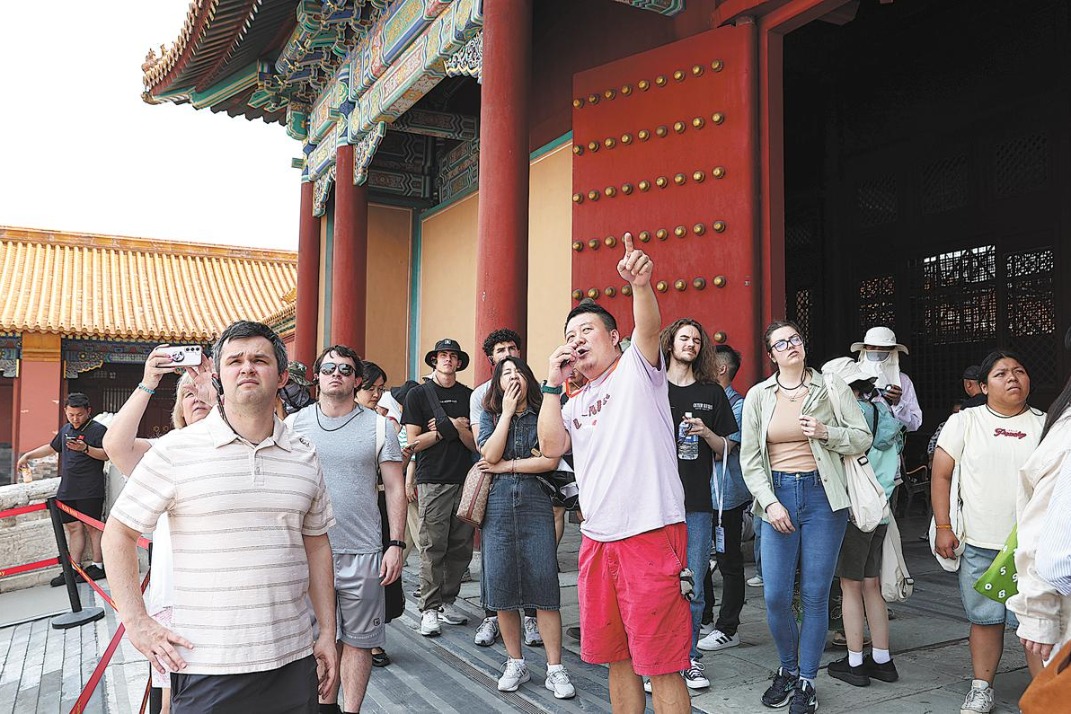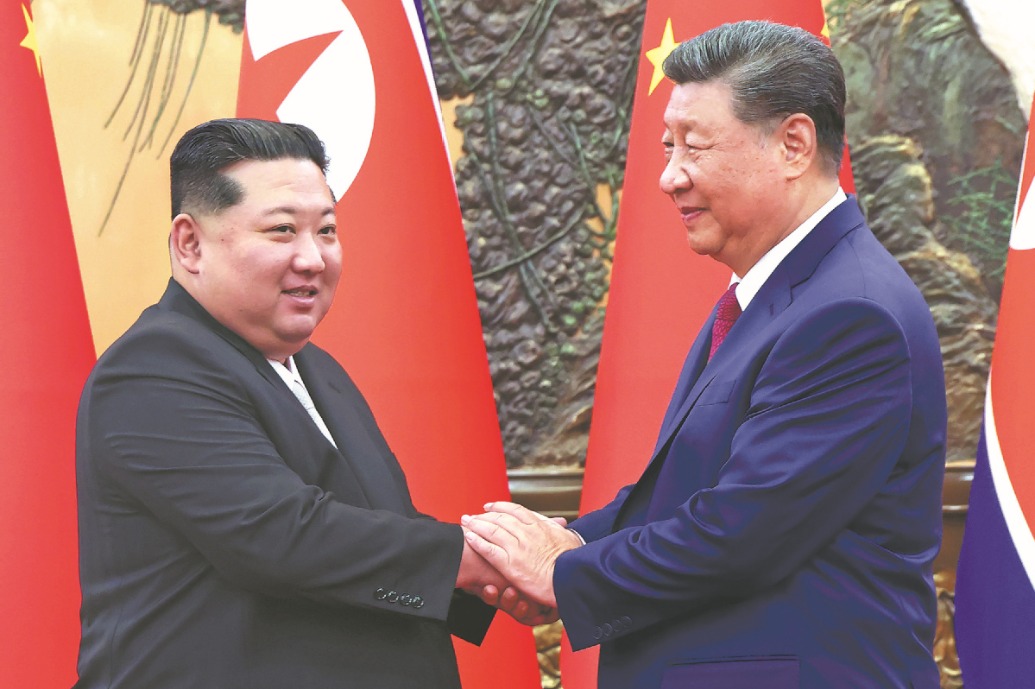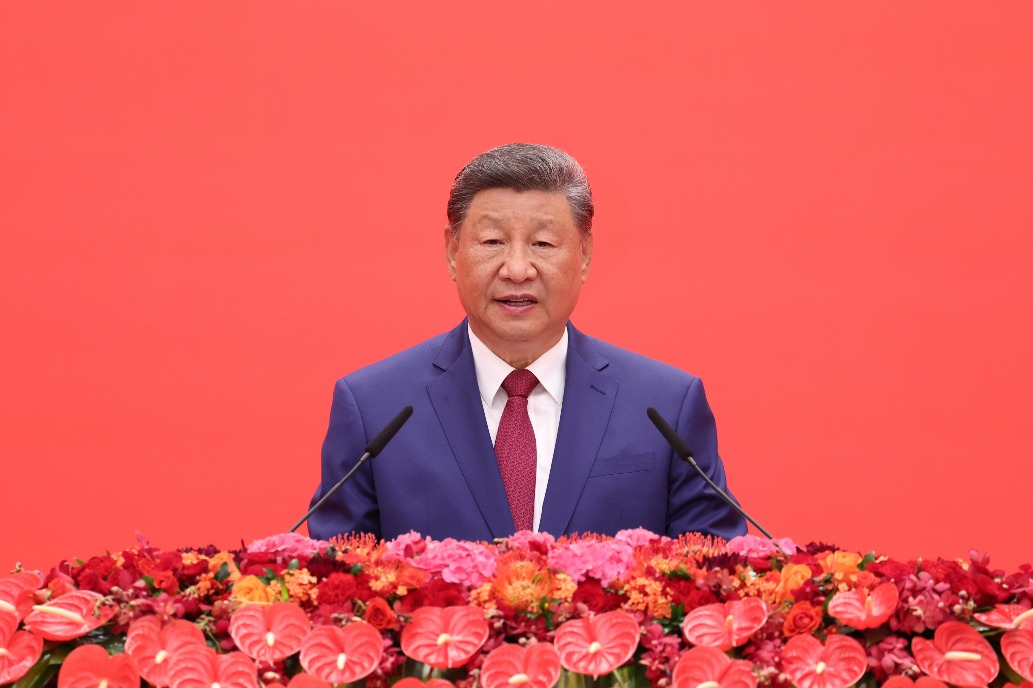US lawmakers look foolish with effort to engage Taiwan

It is nothing new that some US lawmakers are good at staging farce.
On Tuesday, the US House of Representatives passed two bills related to Taiwan through voice votes. The Taiwan Travel Act (H.R. 535) aims to encourage diplomatic visits between US and Taiwan officials at all levels, while the bill H.R. 3320 directs the US secretary of state to develop a strategy to restore observer status for Taiwan in the Geneva-based World Health Organization.
The bills won't become law until they pass the US Senate and then are signed by US President Donald Trump.
The fact that only a handful of members of Congress were present on Tuesday afternoon when the two bills were discussed and voted showed that most US lawmakers didn't take them seriously.
The Taiwan Travel Act, sponsored in January 2017 by Steve Chabot, a Republican representative from Ohio, is a flagrant violation of the one-China principle observed since the People's Republic of China and the United States established their diplomatic ties in 1979. In the 1979 China-US joint communiqu to establish diplomatic ties, Washington recognizes the PRC government as the sole legal government of China and acknowledges that there is but one China, and Taiwan is part of China. The communiqu also stipulates that the US can only maintain unofficial relations with Taiwan.
So it's absurd for US lawmakers, such as Brad Sherman, a Democratic congressman from California, to describe Taiwan on Tuesday as a "country" and "nation".
The Chinese government stance has been firm and crystal clear. When the bill passed the House Foreign Affairs Committee last October, Foreign Ministry spokeswoman Hua Chunying delivered a stern warning that the bill could "harm China-US relations" and encourage "Taiwan independence". She urged the US to handle the Taiwan issue with caution and to refrain from conducting any kind of government-level exchanges with Taiwan and not to send wrong signals to Taiwan "separatists".
"We must once more stress that the relevant draft bill is a serious violation of the one-China policy and of the principles laid out in the three Sino-US joint communiques," Hua said, reiterating China's resolute opposition to any interference in its affairs.
The bill H.R. 3320, sponsored last July by Ted Yoho, a Republican congressman from Florida, is equally absurd by blaming Beijing for the loss of observer status at the WHO last year.
China's central government made special arrangement for Taiwan to attend the World Health assembly from 2009 to 2016 as an observer under the name "Chinese Taipei" in accordance with the 1992 Consensus reached between the mainland and Taiwan.
However, the Democratic Progressive Party leader Tsai Ing-wen, who took office in 2016, has refused to endorse the 1992 Consensus and recognize that the two sides of the Taiwan Straits belong to one China, a prerequisite for Taiwan's participation at the assembly.
Li Bin, the head of China's delegation to the 70th WHA last May, made it clear that the WHO is a specialized agency of the United Nations. UN General Assembly Resolution 2758 and World Health Assembly Resolution 25.1 provide the legal basis for the WHO to follow the one-China principle.
So if those US lawmakers try to help the situation rather than confuse the public, they should urge Tsai to endorse the one-China principle as soon as possible.
Cross-Straits relations grew immensely in the eight years of Taiwan leader Ma Ying-jeou from 2008 to 2016, delivering concrete benefits to people on both sides of the straits. The Chinese mainland is by far Taiwan's largest trade partner, absorbing nearly 30 percent of Taiwan's exports. Closer economic and people-to-people exchanges had brought unprecedented peace and stability to the Taiwan Straits, until it was jeopardized by Tsai's refusal to endorse the 1992 Consensus.
Those US lawmakers who support the bills should first educate themselves instead of becoming a laughingstock. They should also realize that the days that they can willfully interfere in China's internal affairs are long gone.
The writer is deputy editor of China Daily USA. chenweihua@chinadailyusa.com
Today's Top News
- Xi sends congratulatory letter to World Smart Industry Expo 2025
- Defending justice in history, global community
- Honor sacrifices of China, Russia in WWII
- Commemorative gala evokes emotion for cast and audiences
- Speech notes China's peace pursuit
- Hong Kong's economy demonstrates strong growth momentum






























